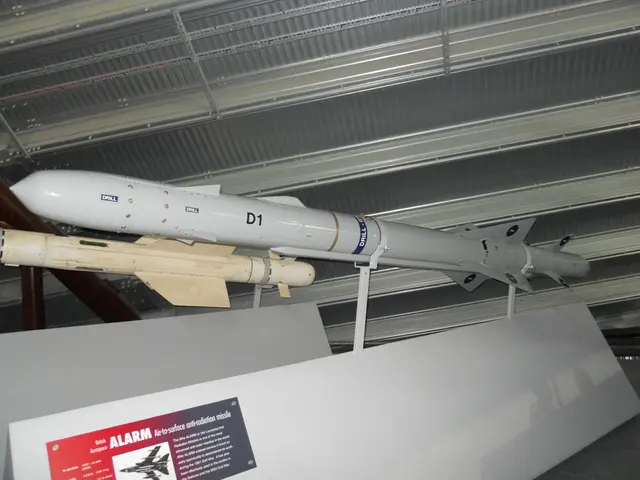EU imposes fresh restrictions on energy, digital currencies, and military technologies as countermeasures against Putin's actions
The European Union (EU) has announced a comprehensive package of new economic sanctions against Russia, targeting energy, finance, and military technologies. The sanctions come in response to Russia's ongoing invasion of Ukraine and aim to increase economic pressure on Moscow.
According to EU Commission President Ursula von der Leyen, the economic analysis shows that the sanctions are heavily impacting the Russian economy. The new measures are designed to further weaken Russia's financial standing and provide support for Ukraine.
One of the key aspects of the sanctions involves the EU issuing bonds, with Russian money invested, and then transferring the funds to Ukraine to address the issue of frozen investments. However, the European Central Bank (ECB) has expressed skepticism about this mechanism.
The sanctions also target cryptocurrency platforms, several Russian banks, banks in third countries linked to Russia's war financing, and foreign banks connected to Russian alternative payment systems. The exact number of banks and companies affected is not specified, but the package is extensive and includes entities in Russia and allied third countries.
The sanctions include a total ban on transactions with energy companies Rosneft and Gazpromneft, as well as a halt to liquefied natural gas (LNG) purchases from Russia. The halt to LNG purchases from Russia is now being brought forward by a year due to the new measures.
The third pillar of the sanctions package concerns the introduction of restrictions on the export of military-related goods and technologies. The proposal aims to completely wean off Russian gas, with spot market purchases to stop by the end of this year and long-term purchases by the end of 2027.
In addition, 45 companies, including some in third countries like China and India, that have provided support to Russia's defense industry will be added to the blacklist. The "ghost fleet" blacklist now includes 560 vessels, which will be banned from using insurance services offered by EU companies.
The EU's High Representative for Foreign Policy, Kaja Kallas, explained the new measures, stating that they are part of the EU's commitment to support Ukraine and to hold Russia accountable for its actions. President Christine Lagarde has expressed doubts and questioned the Commissioner on the specifics of the mechanism.
The Commission President has assured that the assets themselves will not be touched and the EU will collectively bear the risks. The new sanctions package is a significant escalation in the EU's response to Russia's invasion of Ukraine and is intended to further isolate Russia economically.
Read also:
- Russia's harmful cyber operations, directed at the UK, face strong criticism from Estonia
- "Pro-Russian hackers suspected as culprits in suspected damage at a Norwegian dam, according to police reports"
- AI is being utilized by Israel in furtherance of its conflict against Gaza.
- Democrats Urgently Urge Trump Administration to Respond to Cyberattacks Supported by China








